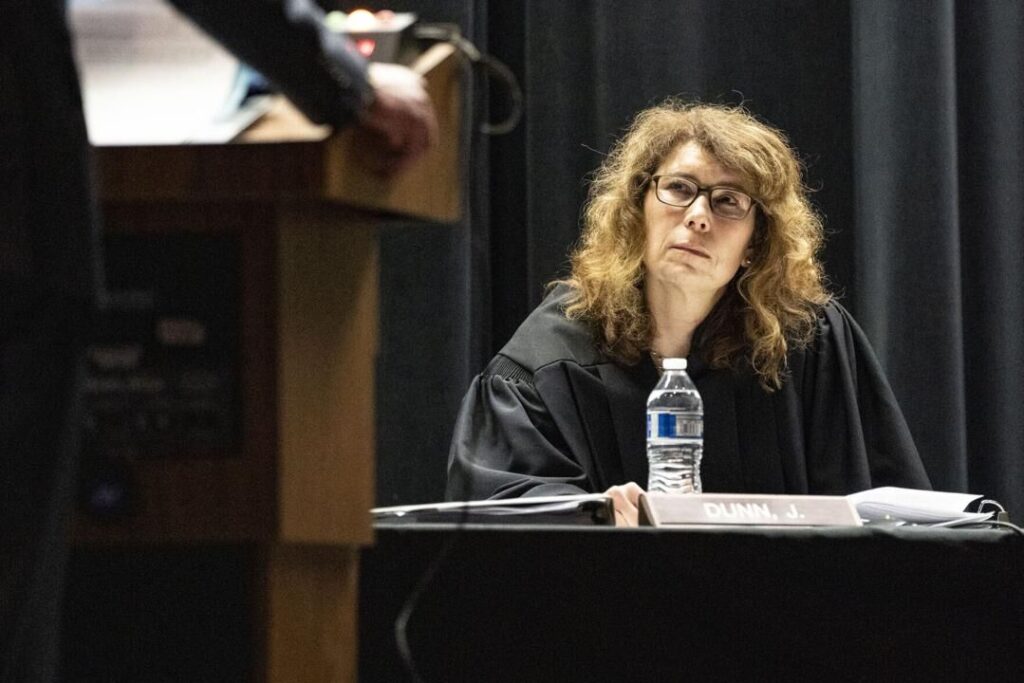Woodland Park to pay $65,000 over deleted comments from police Facebook page

Removing Facebook posts on the Woodland Park Police Department page that contained vulgarities and what officials deemed inappropriate language is costing the city of Woodland Park $65,000, under a recent court settlement.
It’s the largest amount ever reached in a case stemming from a Facebook blocking by a public official, said Andrew McNulty, an attorney with the Denver law firm Killmer, Lane & Newman.
McNulty represented the plaintiff, Colorado Springs resident Delbert Sgaggio, in federal District Court in Denver.
High-profile Denver civil rights attorney working pro bono on case of Woodland Park parent
Sgaggio, who describes himself in the lawsuit as a journalist specializing in issues involving police misconduct, civil rights, constitutional matters and prejudice and racism, claimed his First Amendment rights were violated when police removed comments he made in 2018 on the department’s page.
In response to a 2018 video about a search warrant police conducted at a Woodland Park home on a suspected illegal marijuana grow, Sgaggio wrote, “You target sick kids to get your overtime pay/ … That’s why you are a pig.”
Police said they found 13 marijuana plants instead of the allowed 12 being grown. The marijuana was being used for medicinal purposes for a child who had seizures, Sgaggio said.
“That’s what made me mad,” he said.
Police removed Sgaggio’s first post, which led him to complain, “Why did you punk ass pigs remove my post. I’m going to sue the chief of police, the city of Woodland Park, and whatever punk ass bitch remove (sic) my post…”
Sgaggio also wrote that the city of Woodland Park targets special-needs children for overtime pay and called them “dirty ass cops.”
That post also was taken down, and former police Chief Miles De Young blocked Sgaggio from posting on the police and city Facebook pages, where Sgaggio wrote similar sentiments.
Former CSU Pueblo professors may sue over sex-based discrimination, judge says
De Young wrote on Facebook that the police department reserved the right to remove comments that “do not provide civil discussion or do not adhere to our post/comment policy,” which included a ban on vulgar language.
But profanity, including the four-letter-word that starts with the letter “f,” is protected as free speech under the Constitution’s First Amendment, McNulty said.
“This case sends a message to every public official in the country: respect the free speech rights of your constituents online or pay the price,” he said.
Sgaggio said he knew he was right.
“If you have an open platform, that platform is open for everybody and all opinions,” he said. “The government can’t choose who they want to hear; the government is not allowed to censor.”
Current Woodland Park police Chief Chris Deisler declined to comment on the settlement Monday, saying, “Those events all happened before I arrived and under the previous administration.”
Under terms of the agreement, the city of Woodland Park also was ordered to change its social media policy.
The city deleted the portion of its policy that had allowed employees to remove profanity or vulgarity and also stopped removing posts based on other comments the social media team deemed inappropriate.
The city of Woodland Park has no additional comment on the settlement, City Manager Michael Lawson said.
“In the years since the incident occurred, the city has reviewed its social media policy and made improvements where necessary,” he said.
Colorado judge who pointed AR-15-style rifle at stepson is suspended
Staff members are routinely trained on the city’s social media policy as well, Lawson said.
“Woodland Park is committed to preserving an online space where all people can be heard and freely exercise their First Amendment rights,” he said.
Sgaggio has two other active lawsuits, one against the state attorney general and the city of Colorado Springs involving Second Amendment rights and another First Amendment claim against the city of Pueblo and a police detective.
Three other lawsuits he filed were dismissed under Colorado’s “qualified immunity” law, which allows police officers to be held financially responsible for their actions on the job.













